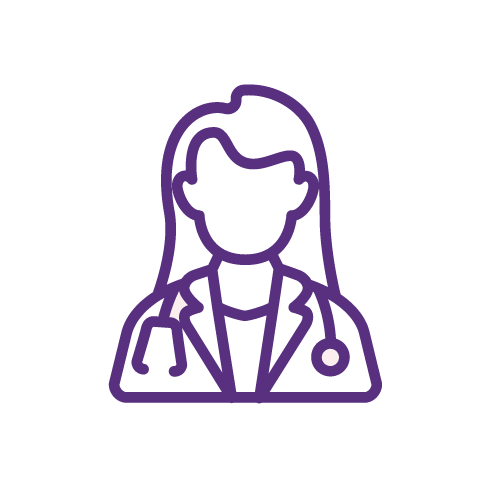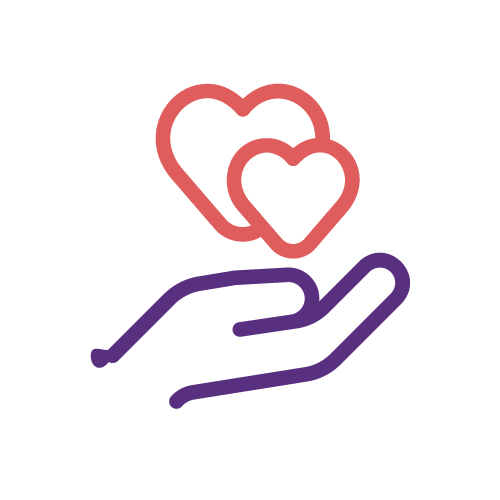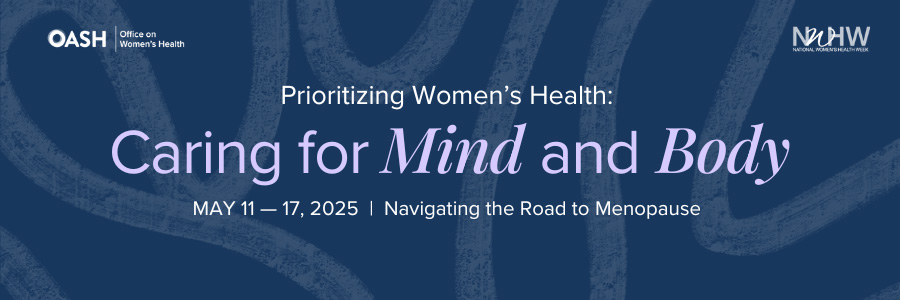
Menopause is a natural part of aging. It happens when a woman has gone 12 consecutive months without a menstrual period—not even spotting—and has not had prior pelvic surgery. At this stage, spontaneous pregnancy is no longer possible. During this time, it’s essential to prioritize both mental and physical well-being.
The Three Stages of Menopause
Menopause happens in stages: perimenopause, menopause, and postmenopause.
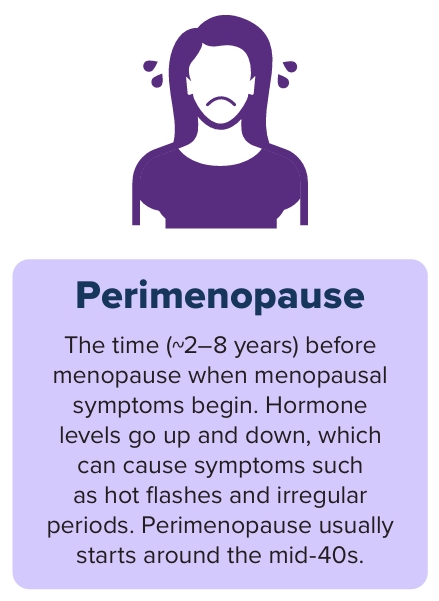
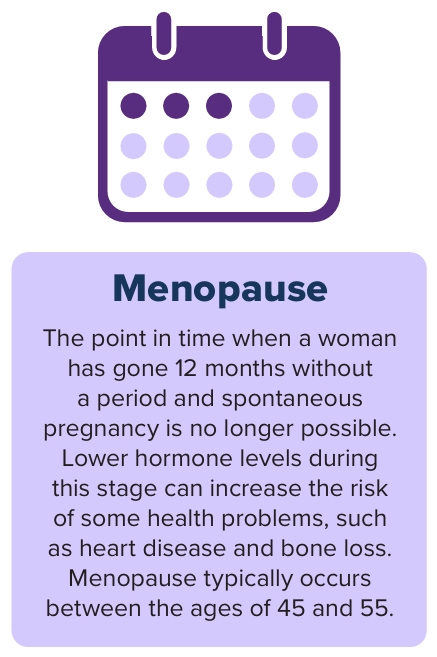
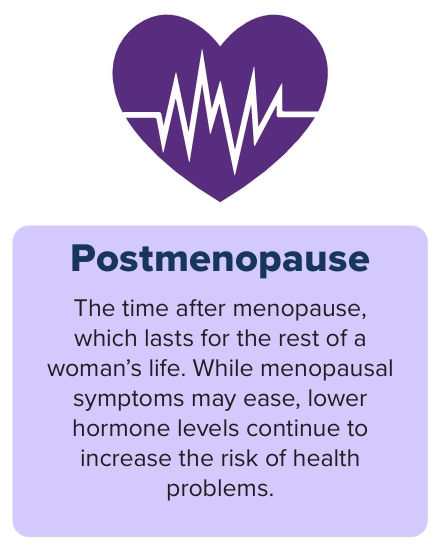
Regular exercise, maintaining a nutrient-rich diet, and managing stress through relaxation techniques, such as yoga and mindfulness, can help support symptoms like hot flashes, sleep disturbances, and mood changes.
Additionally, staying connected with loved ones and seeking emotional support can help maintain a positive mindset during this transition. By caring for both mind and body, women can better manage the challenges of menopause, though each woman's experience is unique.
Want to learn more about menopause? Visit the HHS Office on Women's Health menopause page for more information.
Menopausal Symptoms and Relief
During the transition to menopause, hormone changes can disrupt a woman's menstrual cycle and cause symptoms such as hot flashes and sleep disturbances. Menopause can impact both physical and mental health, and each woman's experience is different.
Learn more about menopausal symptoms and relief options to better understand the health impacts, how to manage symptoms, and strategies that may help during this natural transition.
Menopause Treatments
If menopause symptoms are hard to manage and lifestyle changes are not enough to provide relieve, women should talk to a health care provider. Together, they can explore treatment options to find what works best. In some cases, medication may be needed to help relieve symptoms.
Learn more about menopause treatment options from the HHS Office on Women's Health.
 Visit MyMenoplan.org to create a treatment plan. Users can choose symptoms and review treatment options, and the My Menoplan tool will create a personalized list for women to try on their own or talk about with a health care provider.
Visit MyMenoplan.org to create a treatment plan. Users can choose symptoms and review treatment options, and the My Menoplan tool will create a personalized list for women to try on their own or talk about with a health care provider.
Health During and After Menopause
During menopause, many women experience significant physical and mental changes due to fluctuating hormone levels. As hormone levels decrease, the risk of conditions like heart disease and bone loss may increase. Mentally, women may face challenges like anxiety and depression, especially if they have a history of these conditions. Mood changes can also result from physical symptoms such as sleep disturbances or thyroid imbalances. In addition to mental health symptoms, hormonal changes during menopause may lead to cognitive difficulties, including memory problems, trouble concentrating, and brain fog.
Tips to protect mental health during menopause:
After menopause, the body makes much less estrogen. While this is a natural part of aging, lower hormone levels can increase the risk of certain health conditions. Other health concerns may also become more common with age. It's important to know what to expect after menopause. Knowing the steps women can take to protect their health is important for long-term well-being.
Common Health Changes After Menopause
- Stroke risk
- Bone health
- Bladder control and vaginal health
- Oral health
- Heart health
Monique's story, from the “Menopause and High Blood Pressure: A Survivor's Story” blog Learn how Monique manages her heart health after menopause and why she encourages other women to pay attention to their blood pressure.


For more information on how menopause affects health, explore the HHS Office on Women's Health Menopause and Your Health page
Resources to Learn More
- Menopause - HHS Office on Women's Health (OWH)
- Menopause & Midlife Health - National Institutes of Health (NIH), Office of Research on Women's Health (ORWH)
- 4 Things To Know About Menopausal Symptoms and Complementary Health Practices - NIH National Center for Complementary and Integrative Health (NCCIH)
- Menopause - U.S. Food and Drug Administration (FDA), Office of Women's Health (OWH)






